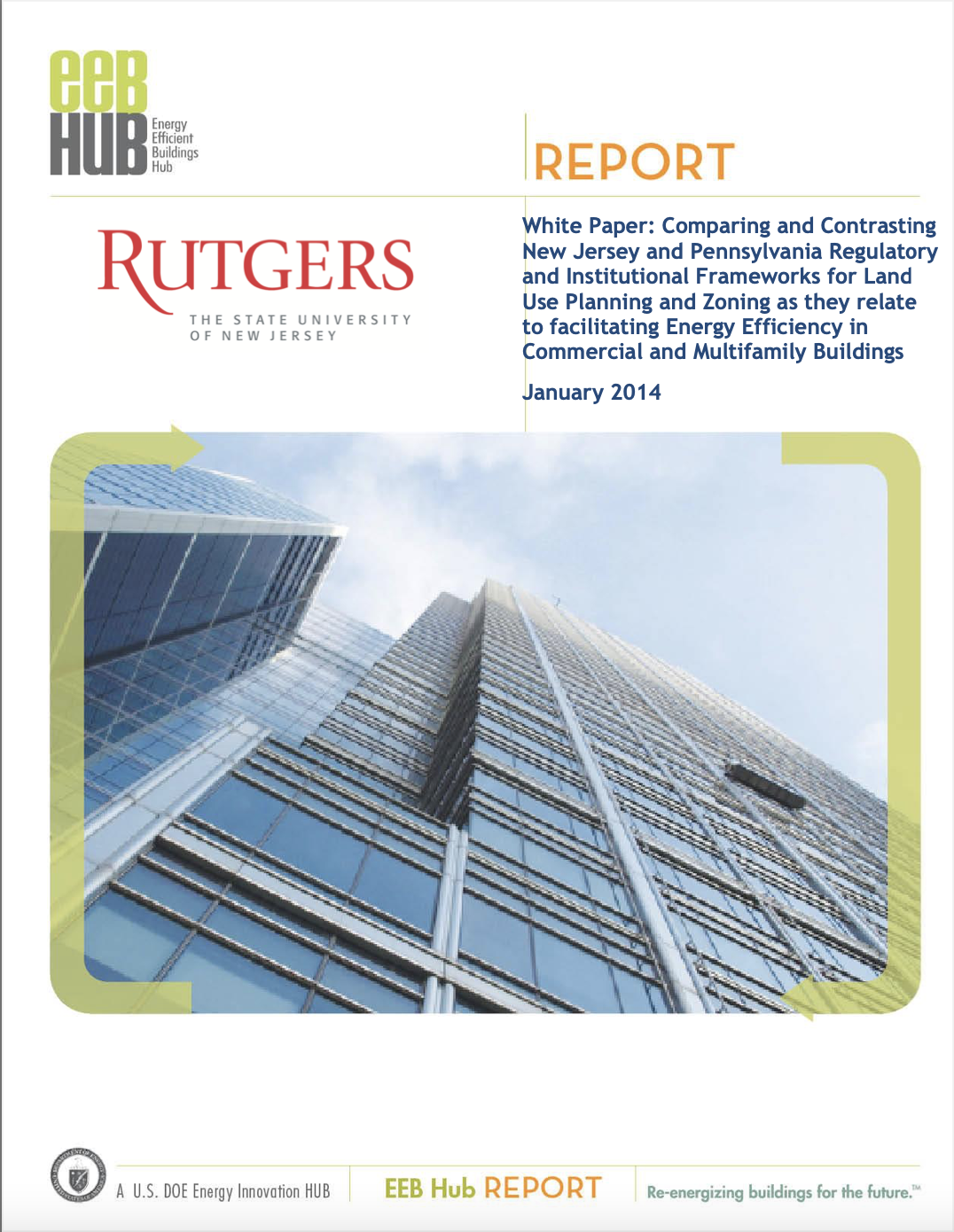Both Pennsylvania (Department of Labor and Industry) and New Jersey (Division of Codes and Standards, Department of Community Affairs) have adopted statewide mandatory codes applicable to the new construction and rehabilitation of commercial buildings. In Pennsylvania the codes may be locally amended and are enforced by local government in jurisdictions that have “opted in”, or by the Department of Labor and Industry in jurisdictions that have “opted out”. Most Pennsylvania jurisdictions have “opted in”, and some of them have contracted with private third parties for enforcement plan reviews and inspections. In New Jersey the codes cannot be locally amended and are enforced by local governments with some private contracting of inspections.
Pennsylvania and New Jersey present a picture of what may be the two extremes in the regulations governing energy efficiency retrofit of commercial buildings. This becomes evident based on a summary of the development of building regulations in the United States, and the development of “smart rehabilitation codes” in the late 1990s. New Jersey led the development of smart rehabilitation codes with its Rehabilitation Subcode in 1998. It was based on the concept of achieving predictability and proportionality in the requirements applicable to construction work in existing buildings.
